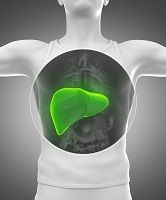Article
Study Examines Risk of Liver Cancer after Hepatitis C Cure
Author(s):
Researchers assessed the risk of developing hepatocellular carcinoma among patients who have been cured of the hepatitis C virus.

A new study looks at the risk of developing hepatocellular carcinoma (HCC) among patients who have been cured of the hepatitis C virus.
Researchers at Baylor College of Medicine in Houston found that patients who were cured of the hepatitis C virus after undergoing treatment had reduced risk of developing HCC, especially when treated before cirrhosis develops, according to a Baylor news release. The findings of the study were published in April in the journal Hepatology.
Chronic infection of the hepatitis C virus can seriously damage the liver over time and lead to cirrhosis of the liver, liver cancer and the need for liver transplant. The virus is a strong risk factor for HCC, the most common type of primary liver cancer, the release notes.
"With the advent of new highly effective medications for treating hepatitis C, we expect to see a lot of people cured of the disease," lead author Hashem El-Serag, MD, chief of gastroenterology and hepatology at Baylor and at the Michael E. DeBakey Veterans Affairs Medical Center, stated in the release. "However, we did not have good information about what happens to these people in terms of their future risks of developing HCC after cure."
Using the Veterans Affairs Hepatitis C Virus Clinical Case Registry, researchers conducted a retrospective study that looked at data from October 1999 to December 2009 of roughly 33,000 patients who were diagnosed with chronic hepatitis C and received treatment for the virus. Follow up data through December 2010 was included in the study.
Treatment for the virus included use of interferon with or without ribavirin. A cure was defined as a sustained virologic response 12 weeks after the end of treatment.
Among the patients treated, some 10,800 achieved a cure. The study examined the risk of developing HCC over several years and the associations between several demographic and clinical features at the point patients were cured to their future risk of developing liver cancer.
Study results indicate that successful treatment for hepatitis C is associated with a significant reduction in risk of cirrhosis, HCC and overall mortality, regardless of age, the release states. However, annual risks of HCC remained considerably high for some subgroups of patients.
Among the patients studied, there were 100 who developed new HCC during a follow up of 30,562 person-years for an overall incidence rate of 0.33% per year, according to the journal article. Hepatocellular carcinoma remained considerably high among patients with cirrhosis and those cured of hepatitis C after age 65. Patients with diabetes also had elevated risk for developing HCC.
"Patients with cirrhosis or diabetes or those who are older than 55 who get cured of hepatitis C need continued surveillance according to current guidelines," El-Serag stated in the release.
The study authors conclude that though the risk of developing HCC is considerably reduced after patients are cured of hepatitis C, it remains relatively high at 0.33% per year. Added surveillance is warranted for older patients with the virus and those with cirrhosis at the time of SVR, states the article.





